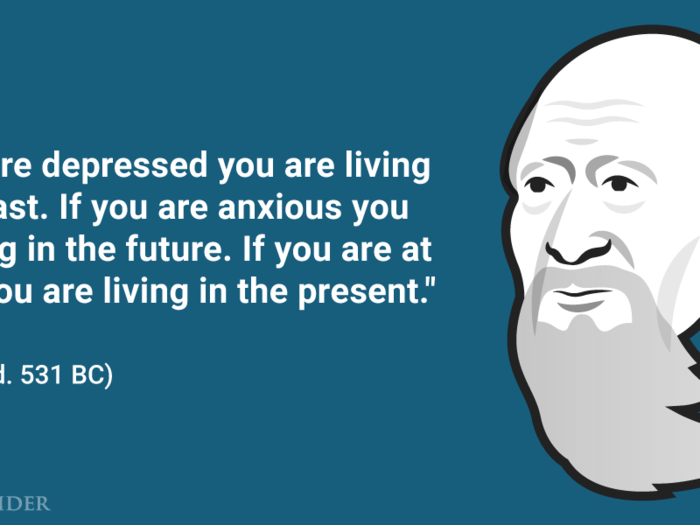9 of history's greatest philosophers reveal the secret to happiness
Bertrand Russell

Friedrich Nietzsche

For Nietzsche, the famous mustachioed nihilist, happiness is a kind of control one has over their surroundings.
The German philosopher wrote frequently on the impacts that power (and a lack of power) can have on people's lived experiences. When people resist, they take back their agency. That sense of self can then turn into happiness.
John Stuart Mill

John Stuart Mill was a titan of liberalism, perhaps its most important figure in history. He spread the gospel of liberty wherever he could.
When it came to happiness, he adopted the wisdom of the ancient Greeks. Instead of inundating his life with goods, Mill believed in utilitarianism. He believed in using things for a purpose, and if they served no purpose, he banished them from his life.
Socrates

For Socrates, one of the greatest ancient thinkers, happiness doesn't come from external rewards or accolades. It comes from the private, internal success people bestow upon themselves.
By paring down our needs, we can learn to appreciate simpler pleasures.
Confucius

Confucius' sentiment about happiness has echoed through history in books such as "The Power of Positive Thinking" and recent research in cognitive behavioral therapy, which seeks to help people see the connections between their thoughts, feelings, and behaviors.
According to a Confucian mindset, happiness is a self-fulfilling prophecy that replicates itself the more we find reasons for its existence.
Seneca

Beloved by contemporary philosophy nerds like the investor Nassim Taleb and marketing whiz Ryan Holiday, the Stoic philosopher firmly believed in what psychologists would now call the "locus of control."
For some people, the locus lives externally. They feel like outside forces guide their actions. For others (in Seneca's mind, the happy ones), the locus lives within.
Lao Tzu

Translated simply as "Old Man," nobody is quite sure who Lao Tzu really was. But the figure's wisdom on living in the moment has transcended millennia.
And psychologists uphold its benefits.
Some research suggests people report the greatest happiness when they are engaged in things that require their full and present attention: good conversation, creative tasks, or sex.
Soren Kierkegaard

Before there was the stellar mash-up Twitter account Kim Kierkegaardashian, there was the Danish philosopher who inspired it.
Kierkegaard was of the mind that happiness comes from being present in the moment and enjoying the ride. Once we stop turning our circumstances into problems and start thinking of them as experiences, we can derive satisfaction from them.
Henry David Thoreau

Perhaps unsurprisingly, the transcendentalist author and advocate for civil disobedience took a passive approach to happiness.
As he detailed in "Walden," Thoreau preferred to break convention. He avoided habit. Perhaps through the commitment to randomness, he thought, he could find some larger, more cosmic sense of happiness.
The idea aligns nicely with other thinkers' message to live in the moment.
Popular Right Now
Popular Keywords
Advertisement